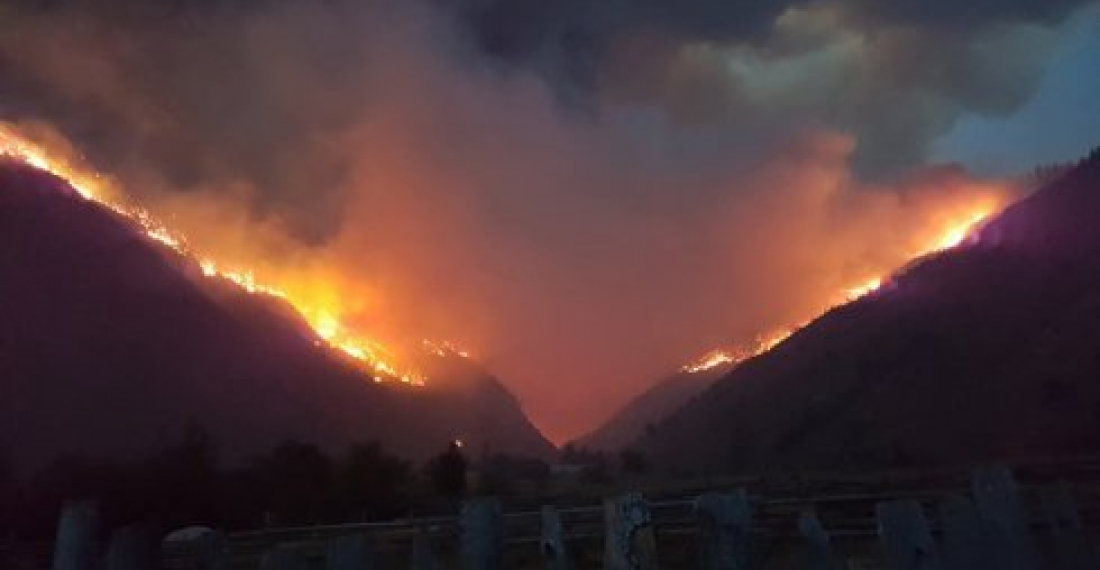Several fires have ravaged in different parts of the Caucasus region in the last days.
In Georgia, fire ravaged over 12 hectare area in the Borjomi-Kharagauli Nature Reserve Rescue services with helicopter support fought the fire throughout the day Monday (21 August). It was reported that Azerbaijan sent a helicopter from its Ministry of Emergency Situations to assist in the operation.
In Armenia, it was reported that about 200 hectares of peak and 900 hectares of oak forests as well as 1,600 hectares of grass area were destroyed by a fire at Khosrov Forest State Reserve National Park. One hundred fire and rescue workers as well as ten forestry staff members brought the fire under control on Sunday (20 August).
Meanwhile, on the other side of the Caucasus mountains, in the Russian city of Rostov on Don a fire engulfed 30 homes on Monday afternoon.
The fire started as the result of a gas explosion and soon spread across an area of roughly 10,000 square meters, the Interfax news agency reported, citing the local branch of the Emergency Situations Ministry. A Spokesperson for the Donenergo energy company Anna Larchenko told TASS news agency that more than 1,200 people in the fire area in downtown Rostov-on-Don remained without electricity. "Because of the fire, two transformer substations located in the fire area had to be shut down," she explained adding that power supply would be restored as soon as the Emergencies Ministry's firefighters contained all the hot spots.
According to earlier reports, 30 private houses on an area of around 10,000 square meters were affected by the fire in Rostov-on-Don. There have been no reports of fatalities, while 36 people requested medical assistance and seven were hospitalised. A state of emergency has been declared in the city and rescue workers evacuated more than 650 people from neighboring houses.
source: commonspace.eu with agencies
photo: Firemen at the Borjomi National Park tackling a major fire on Monday, 21 August 2017. (picture courtesy of Inter-Press News)






